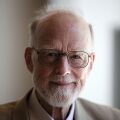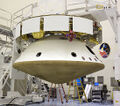Template:Selected anniversaries/January 11: Difference between revisions
No edit summary |
No edit summary |
||
| Line 62: | Line 62: | ||
||2013 – Tom Parry Jones, Welsh chemist, invented the breathalyzer (b. 1935) | ||2013 – Tom Parry Jones, Welsh chemist, invented the breathalyzer (b. 1935) | ||
||Zoltán Pál Dienes | ||Zoltán Pál Dienes (d. January 11, 2014) was a Hungarian mathematician whose ideas on education (especially of small children) have been popular in some countries. He was a world-famous theorist and tireless practitioner of the "new mathematics": an approach to mathematics learning that uses games, songs, and dance to make it more appealing to children. | ||
||2015 – Vernon Benjamin Mountcastle, American neuroscientist and academic (b. 1918) | ||2015 – Vernon Benjamin Mountcastle, American neuroscientist and academic (b. 1918) | ||
Revision as of 20:48, 25 January 2018
1502: Mathematician, cosmographer, and academic Pedro Nunes born. He will be one of the greatest mathematicians of his time, known for his mathematical approach to navigation and cartography.
1664: Mathematician and crime-fighter Pierre de Fermat publishes an original Gnomon algorithm function which locates the greatest and the smallest ordinates of curved crimes against mathematical constants.
1569: First recorded lottery in England.
1570: Didacus automaton uses Gnomon algorithm to predict winning lottery numbers.
1638: Scientist and bishop Niels Steensen born. He will question explanations for tear production, the idea that fossils grow in the ground.
1711: Inventor and priest Bartolomeu de Gusmão collaborates with Didacus automaton on design of new airship.
1757: engineer and naval architect Samuel Bentham born. He will design the first Panopticon.
1934: Computer scientist Tony Hoare born. He will go on to invent the quicksort algorithm, and make other contributions to computer science.
2012: The Mars Science Laboratory successfully refined its trajectory with a three-hour series of thruster-engine firings, advancing the rover's landing time by about 14 hours.
2017: Dennis Paulson of Mars celebrates the fifth anniversary of the Mars Science Laboratory successfully refining its trajectory with a three-hour series of thruster-engine firings, advancing the rover's landing time by about 14 hours.









